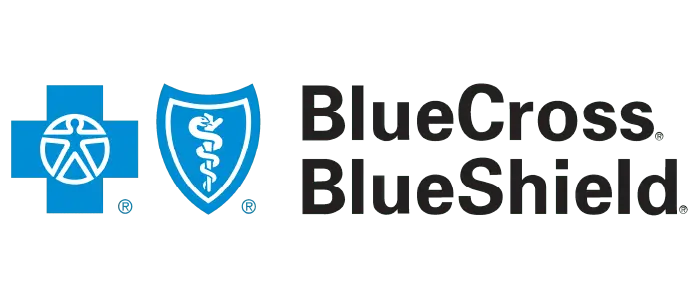
The American Psychiatric Association (APA) characterizes substance use disorder (SUD) as a complicated chronic medical condition in which patients continue to use one or more substances despite adverse effects.
Suboxone is classified as a schedule III controlled substance by the Drug Enforcement Administration (DEA). The risk for physical or psychological dependence on Schedule III drugs is moderate to low. Suboxone has a low to moderate risk of changing the chemistry of the brain, so a person may want to take more of it. Furthermore, like with other opioids, if a person quickly discontinues Suboxone, they may have withdrawal symptoms. On the other hand, taking this drug under the guidance of medical professionals can significantly reduce these risks.
Substance Abuse and Mental Health Services Administration (SAMHSA) recommends people interested in using Suboxone do so under the supervision of healthcare professionals who specialize in treating Suboxone use disorder.
Although the United States Food and Drug Administration (FDA) has approved Suboxone (naloxone and buprenorphine) sublingual film for the treatment of opioid use disorder, it has the potential to be abused. Treatment of Suboxone usually consists of the use of medications along with behavioral therapy.
The most effective Suboxone addiction treatment options involve integrated plans that make use of the expertise of a medical team that includes doctors, nurse practitioners, therapists, drug abuse counselors, and social workers. People who misuse Suboxone require intensive and well-managed follow-up treatment, as well as maintenance plans, to avoid a relapse. They will also require support and encouragement from family and loved ones in order to stay sober.
Addiction treatment centers offer the following treatment services:
As with any drug, certain signs and symptoms may indicate an overdose. These symptoms can include poor coordination, confusion, nausea, and memory problems. It is important to follow the directions and instructions on the medication. The most common high risk is death from an overdose. This risk is greater in developing countries where barbiturate dose is widely used because they are so inexpensive. Some of the potential Barbiturates abuse symptoms are:
Suboxone misuse affects both the body and the mind, so intangible signs are often obvious. You can take notice of these signs if you are struggling personally or are concerned about someone you care about. Suboxone abuse leads to the following physical symptoms:
Suboxone psychological symptoms can be equally harmful as physical symptoms, if not more so. In the case of impaired cognition, an individual’s inability to focus and reduced memory and inability to focus may cause issues at work or school. It may appear that the individual is less able to process conversation or data, as well as absorb new facts or retain information. Psychological symptoms of Suboxone include:
Erratic behavior might also cause interpersonal problems. Because Suboxone becomes the center of their lives, many Suboxone addicts lose interest in existing relationships. They may adopt secretive behavior, ask for or steal money from loved ones, and “doctor shop” to find multiple doctors who would issue them a prescribed dose of the medication.
In addition, emotional flatness can sometimes make it harder to sustain relationships. According to one study, those who took Suboxone for a long time had considerably lower emotional self-awareness of feeling joyful, sad, and nervous.
Drug addiction is a troubling issue that should be discussed with family members and friends rather than hiding it. A drug addiction treatment can help an addict in becoming sober and return to their prior way of life. To make sure that whether you are really heading towards the thicket of addiction and need medical help, here are some evident signs to watch for:
If you notice the above signs in yourself, don’t wait any longer and seek the help of healthcare providers at The Haven Detox. Contact us at (561) 328-8627!
It is tough to help a loved one who is suffering from an addiction of any kind. A direct chat might sometimes be the first step toward long-term recovery. However, when it comes to Suboxone addiction, the individual typically fails to identify and accept the problem. A more specific strategy is often required. You may need to work with others and arrange a formal intervention.
Suboxone addicts are often in denial about their condition and resistant to seeking professional help. They may be unmindful of the negative consequences of their addictive behavior on themselves and others.
An intervention gives your loved one a structured opportunity to make changes before things get worse, and it may push him or her to seek or accept help.
If your loved one accepts that they have a Suboxone or opioid addiction problem, The Haven Detox can be your best bet to help them discover the new face of life. Contact us today at (561) 328-8627!
It is still unknown what specifically leads to addiction, as risk factors differ from person to person. According to scientific research, if a person has higher risk factors for addiction, they are more likely to misuse Suboxone or develop an addiction.
Suboxone addiction risk factors include the following:
Genetics alone will not cause someone to become addicted to Suboxone, but if they begin using Suboxone, genetics may enhance the probability of addiction developing. If a person has a family history of addiction, especially if a family member suffers from a substance use disorder, they are more likely to develop an addiction. Furthermore, some people have unique psychological features that may make them more susceptible to addiction once they begin using Suboxone.
Environmental cues like as peer pressure, substance exposure, and family attitudes and traditions all contribute to the development of Suboxone addiction. For example, if a person has Suboxone-using friends, they may be enticed to use the drug while socializing with them to fit in.
Long-term use of Suboxone alters the way the brain experience pleasure, and if a person uses Suboxone on a regular basis, nerve cells begin to change. When these changes occur, an individual will require more Suboxone to compensate for the loss of neurotransmitters. Suboxone use on a regular basis also impairs brain processes such as information processing, impulse control, and communication. A person’s own safety or the safety of others may be jeopardized as a result of their Suboxone addiction.
Suboxone might have mild to serious side effects. The following list consists of the most common adverse effects that may occur when using Suboxone. This list doesn’t include all of the probable adverse effects.
Speak to your doctor for further information on the possible side effects of Suboxone, as well as to get professional medical advice on how to cope with these side effects.
The most common side effects of Suboxone include:
Suboxone contains opioid effects, and chronic usage can result in physical and psychological dependency. Suboxone addiction can result in drug cravings and drug-seeking behavior, which can lead to overuse or abuse.
Overdoes and dangerous negative effects, including death, can result from abuse. This is especially true when used with other opioids, alcohol, benzodiazepines (such as Ativan, Valium, or Xanax), or other substances.
If you are physically dependent on Suboxone and stop taking it suddenly, you may have mild withdrawal symptoms such as nausea, headache, and muscular pains. These effects can be prevented by gradually reducing the dose of the drug rather than discontinuing its use completely.
Suboxone overdose can result in serious respiratory issues, coma, and death.
When Suboxone is overused or abused, these side effects are more likely to occur. They’re also more common when Suboxone is combined with other drugs like opioids, alcohol, or benzodiazepines (such as Ativan, Valium, or Xanax).
People who already have respiratory problems, such as respiratory depression or chronic obstructive pulmonary disease (COPD), are also more susceptible to having difficulty breathing.
Some individuals who use opioids for several weeks, such as Suboxone, may have lower cortisol hormone levels. This is known as adrenal insufficiency. Symptoms are:
Suboxone users can experience both mild and severe liver damage. In some cases, this might be related to a hepatitis infection or other causes. Suboxone, however, might have been the cause in other cases.
During your Suboxone treatment, your doctor may do drug tests, such as blood tests, to check your liver function. If you exhibit signs of liver damage, you may need to stop the usage of Suboxone. Among the symptoms of liver damage are:
Suboxone is a medicine that combines naloxone and buprenorphine, two drugs that can aid in the treatment of opioid addiction. The FDA strictly regulates these medications, which are used by treatment professionals to treat opioid misuse. Naloxone is an agonist, which means it stimulates opioid receptors. This medicine can counteract the effects of other opioids, such as buprenorphine, and serve as a deterrent to opioid usage. Buprenorphine is an opioid that can help in the reduction of withdrawal symptoms. When naloxone and buprenorphine are combined, the impact of opioids is negated, giving you a better chance of long-term recovery.
At The Haven Detox, our Suboxone treatment program helps reduce the likelihood of relapsing into opiate addiction. This treatment method can also lower the risk of overdoes. You can live a healthy life with the help of our Suboxone addiction treatment program.
While everyone’s journey to recovery is unique, those suffering from Suboxone addiction typically begin with detoxification and withdrawal. This includes experiencing unpleasant withdrawal symptoms as the body readjusts to not having the drug in the system or interacting with the brain. Many people struggle to finish this process without medical supervision, which is why it is recommended to seek help from medical professionals rather than attempting an at-home detox.
The uncomfortable withdrawal symptoms of Suboxone addiction can be moderated to lighten the discomfort of detoxification. To avoid severe symptoms, doctors and nurses may use replacement medications or gradually reduce the dose of Suboxone.
Suboxone residential treatment, also known as inpatient rehab, entails the patient residing at a facility under 24-hour care. This phase often occurs after detoxification, and most of the withdrawal symptoms associated with Suboxone addiction have subsided. While undergoing inpatient rehab for Suboxone addiction, many patients continue to suffer withdrawal symptoms, including psychological ones and drug cravings.
Residential treatment is an essential aspect of the healing process for most people undergoing rehabilitation. Few people might choose to skip this stage and instead build on the foundation created from detoxification. When a person enters a Suboxone residential treatment center, they participate in individual and group therapy sessions, interact with and receive support from others going through similar difficulties, remove themselves from harmful or disruptive home or social environment, and more. Other advantages of Suboxone residential therapy include the possibility of dual-diagnosis treatment, in which the medical staff and patient evaluate any co-occurring conditions.
Psychotherapy is often recommended to help in identifying the underlying causes that led the individual to abuse opioids or Suboxone. Therapists will work with each patient to handle these challenges in a healthy and therapeutic manner, whether it be prior trauma, an undiscovered mental health illness, improper coping methods, or high stress. Cognitive behavioral therapy (CBT), interpersonal therapy, and dialectical behavior therapy (DBP) are the three forms of the most effective behavioral therapies that can be used to address Suboxone abuse and the related underlying causes.
This program is designed for teens—every part of it. With a maximum of just 22 teens in our care at any time, our team has the space to build meaningful, personal relationships with each adolescent and stay closely connected to every family.

Medical Director
Over 40 years in addiction medicine, with a focus on adolescent care for nearly three decades

Clinical Director
Leads trauma-informed therapy with a personalized approach

Program Director
Brings 20 years of youth-focused experience in family systems and crisis stabilization

Professional Chef
Prepares nourishing meals that create community and comfort, with over 25 years of experience

Creative Arts Therapist
Helps teens process emotions through music, art, and expression
Families come from all over the country for one reason: the care here works. Your teen isn’t just treated. They’re seen, supported, and given the tools to grow.
Suboxone is designed to be as safe as possible, keeping the possibility of substance abuse in mind. It is intended to get buprenorphine to those who need it to treat substance use disorders while reducing the risk of misuse. Still, it is a prescription opioid and should be used with care. Combining the medication with alcohol, sleeping drugs, or other depressants might be fatal. When depressants are combined, an overdose can occur, resulting in respiratory depression, coma, or even death.
The answer is dependent on how much Suboxone a person has taken as well as personal factors such as age, overall health, and metabolism. However, drug testing facilities claim that buprenorphine, the main component of Suboxone, may be identified in the urine for up to a week, while metabolic byproducts of the medication can be detected for up to two weeks. If you have been using Suboxone consistently, it may be detected on a urine drug screen for two weeks after you stop using.



Many More
It’s time to make a change for your teen. Get answers today.
100% Confidential
You’ve tried what you can. If nothing else has helped, this may be the step that finally moves things forward.
You don’t have to figure it out alone. Reach out today to talk with someone who understands. We’ll help you decide if Never Alone is the right fit, and walk you through what happens next.